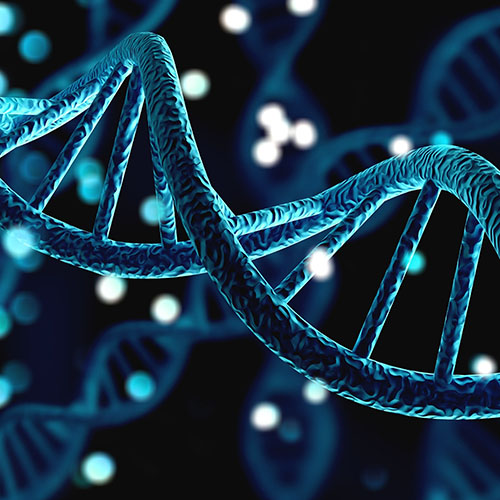Introduction
Starting a weight loss journey is a multifaceted process that involves factors beyond diet and exercise. When we acknowledge the significant influence of our genetic composition, the personalized aspect of this procedure becomes apparent. Each person’s distinct genetic code influences how they react to weight loss techniques, revealing the causes of the disparate results that different people encounter. This blog will explain the complex relationship between genetics and weight loss, highlighting the importance of being aware of our inherited tendencies. Through exploring this area, we hope to provide insight into how this knowledge can be used to optimize and inform individualized strategies, pointing people in the direction of more viable and successful routes to a healthier lifestyle.
The Genetics of Metabolism
- Metabolic Rate Variability: Genetic factors affect our basal metabolic rate (BMR), or the amount of calories our bodies burn while at rest. Some people have a higher BMR due to genetic predispositions, which enables them to burn more calories even when they are not moving. Some people may find it more difficult to lose weight because of a slower metabolism. When customizing weight loss strategies, it is imperative to acknowledge this variability.
- Fat Metabolism and Storage: Our bodies’ ability to metabolize and store fat can be affected by genetic variations. Genes that support efficient fat breakdown and energy utilization may be present in some individuals, but genes that encourage fat storage may be found in others. Comprehending these genetic subtleties can aid in tailoring dietary suggestions for ideal fat utilization.

Genetic Factors Influencing Eating Behavior
- Appetite Regulation: Our bodies’ ability to control hunger and fullness is influenced by a number of genetic factors. Some people may naturally feel satisfied more quickly than others, and some people may feel hungry for longer periods of time. Adapting meal plans to account for these variations can improve weight loss strategy adherence.
- Food Preferences and Sensitivity: Our susceptibilities to particular foods and our taste preferences are influenced by genetic variations. For example, some people may have a lower tolerance for bitter flavors, which could affect how well they like a particular vegetable. Taking these preferences into consideration can help create individualized, long-lasting nutrition programs.
Genetic Insights into Physical Activity
- Exercise Response: Our bodies’ reactions to various types of exercise can be influenced by genetics. Cardiovascular exercise may be more beneficial for some people than resistance training for others when it comes to weight loss. By being aware of these differences, exercise regimens can be tailored to individual genetic predispositions.
- Muscle Fiber Composition: Our innate ability to perform strength- or endurance-based activities is influenced by genetic factors that affect the composition of our muscle fibers. People who possess a greater percentage of slow-twitch muscle fibers might be more adept at endurance exercises, which could affect how well their weight loss plans work in comparison to people who have a higher proportion of fast-twitch fibers.
Precision Nutrition and Genetic Testing
- Nutrigenomics: The study of the interaction between nutrition and genetics is known as nutrigenomics. Knowing how our genes affect the way our bodies metabolize nutrients allows us to customize diets to fit our individual genetic profiles. Variations in dietary sensitivities, vitamin metabolism, and macronutrient requirements are taken into consideration in personalized nutrition.
- Genetic Testing for Weight Loss: People can now learn more about their individual genetic make-up thanks to advancements in genetic testing. Businesses that offer genetic testing for weight loss examine particular genetic markers linked to appetite control, metabolism, and response to exercise. Equipped with this knowledge, people can choose their weight loss tactics with knowledge.
Navigating the Genetic Landscape for Weight Loss Success
- Holistic Approach: It is important to note that acknowledging the impact of genetics on weight loss does not lessen the significance of lifestyle decisions. Rather, it highlights the necessity of a comprehensive strategy that incorporates genetic insights into more expansive approaches to health enhancement. Personalized diet plans combined with regular exercise and behavioral modifications increase the chances of long-term weight loss.
- Behavioral Adjustments: Knowledge of genetic predispositions can enable people to make wise behavioral adjustments. Weight loss efforts are more successful when lifestyle choices are tailored to account for genetic factors. This can involve changing mindful eating habits, portion sizes, and exercise preferences.
- Long-Term Sustainability: Genetic insights-driven personalized weight loss plans support long-term sustainability. When interventions are tailored to each person’s genetic profile, people are more likely to follow through on their goals and achieve long-term success in reaching and maintaining a healthy weight.

Conclusion
Our genetic makeup shows up as a major factor affecting the effectiveness of various weight loss techniques in the intricate web of weight loss. There is no one-size-fits-all strategy for adopting a healthier lifestyle; instead, it calls for a customized approach that takes into account the complex interactions between genetics, metabolism, eating habits, and physical activity. Accepting the information that comes from genetic insights enables people to precisely customize their weight reduction plans, raising the possibility of long-term success. Our understanding and application of successful, tailored health interventions will be revolutionized in the future as we decipher the genetic code underlying weight loss.
